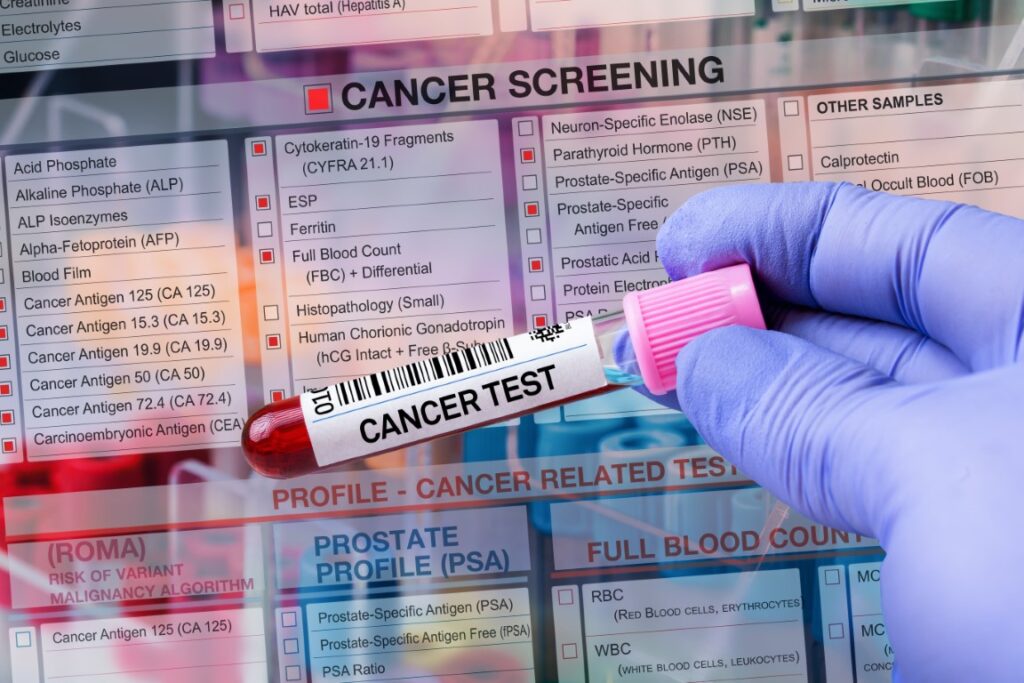Did you know that nearly half of American adults have high blood pressure? Regular blood pressure monitoring is crucial for early detection and prevention of cardiovascular issues.
But that's just the beginning. From cholesterol level testing to cancer screenings and diabetes risk assessments, staying on top of preventive health screenings is key to maintaining optimal wellness.
Discover how these screenings can help you proactively manage your health and what other essential screenings you should consider for a comprehensive preventive care plan.
Blood Pressure Monitoring
Regularly checking your blood pressure is a simple yet crucial step in maintaining your overall health and well-being. By incorporating home monitoring into your routine, you gain valuable insights into your cardiovascular health. Lifestyle changes play a pivotal role in managing blood pressure levels. Engaging in regular physical activity, such as brisk walking or cycling, can help lower high blood pressure. Additionally, adopting a diet rich in fruits, vegetables, whole grains, and lean proteins while reducing sodium intake can have a positive impact on your blood pressure.
Monitoring your blood pressure at home allows for more frequent checks and helps in identifying any fluctuations early on. This information can guide you in making informed decisions about your health. By taking charge of your blood pressure through home monitoring and making necessary lifestyle adjustments, you empower yourself to proactively manage your well-being. Remember, small changes can lead to significant improvements in your overall health and quality of life.
Cholesterol Level Testing
When it comes to your health, understanding your cholesterol levels is crucial. Factors such as diet, exercise, and genetics can influence your cholesterol numbers.
Regular monitoring and proper management can help you maintain optimal cholesterol levels and reduce the risk of heart disease.
Importance of Cholesterol Levels
Maintaining healthy cholesterol levels is crucial for overall wellness and disease prevention. When it comes to managing your cholesterol levels, here are five essential tips to keep in mind:
- Balanced Diet: Focus on consuming whole grains, fruits, vegetables, lean proteins, and healthy fats.
- Regular Exercise: Engage in physical activities you enjoy, such as walking, swimming, or cycling.
- Limit Saturated Fats: Reduce intake of foods high in saturated fats like red meat and full-fat dairy.
- Avoid Trans Fats: Stay away from processed foods containing trans fats to protect your heart health.
- Monitor Levels: Get regular cholesterol screenings to track your levels and make informed decisions about your health.
Risk Factors to Consider
To effectively assess your risk factors for cholesterol-related issues, undergoing regular cholesterol level testing is essential. Genetic predisposition plays a significant role in cholesterol levels; therefore, knowing your family history can guide your preventive measures.
Lifestyle habits, such as diet and physical activity, also greatly impact cholesterol levels. Understanding how these factors influence your health can empower you to make informed choices.
Monitoring and Management
Regular monitoring of your cholesterol levels through testing is crucial for effective management and prevention of potential health risks. Keeping a close eye on your cholesterol can help you make informed decisions about your health. Here are some key points to consider:
- Diet habits: Maintain a balanced diet low in saturated fats and high in fruits, vegetables, and whole grains.
- Exercise routine: Incorporate regular physical activity into your daily routine to help lower cholesterol levels.
- Consultation: Discuss your cholesterol levels with a healthcare provider to develop a personalized management plan.
- Medication adherence: If prescribed cholesterol-lowering medication, ensure you take it as directed.
- Lifestyle modifications: Implement healthy lifestyle changes to support overall cholesterol management.
Cancer Screening
Regular cancer screenings can greatly improve early detection and treatment outcomes. These screenings are crucial for preventive care, as they can help identify cancer in its early stages when it's most treatable. Screening tests vary based on the type of cancer being assessed, but common ones include mammograms for breast cancer, colonoscopies for colorectal cancer, and Pap smears for cervical cancer.
Early detection through regular screenings can significantly increase the chances of successful treatment and even prevent cancer from developing or spreading. It allows for timely intervention, which can lead to better outcomes and potentially save lives. By staying proactive with your health and scheduling routine screenings as recommended by your healthcare provider, you're taking a proactive step towards safeguarding your well-being.
Diabetes Risk Assessment
Assessing your risk for diabetes is a crucial step in maintaining your overall health and well-being. Understanding factors like blood sugar levels and insulin resistance can help you take proactive measures to prevent diabetes.
Here are five essential points to consider:
- Regular Blood Sugar Monitoring: Keep track of your blood sugar levels regularly to detect any abnormalities early on.
- Healthy Eating Habits: A balanced diet rich in fruits, vegetables, and whole grains can help regulate blood sugar levels and reduce the risk of diabetes.
- Physical Activity: Regular exercise not only helps in maintaining a healthy weight but also improves insulin sensitivity.
- Family History: Knowing your family's history of diabetes can give you insights into your genetic predisposition.
- Consultation with Healthcare Provider: Regular check-ups and discussions with your healthcare provider can help assess your risk factors and create a personalized prevention plan.
Bone Density Scan
When it comes to your bone health, understanding the importance of a bone density scan is crucial.
This screening can help detect osteoporosis early, allowing for timely intervention.
Following screening guidelines based on age, gender, and risk factors is essential for maintaining strong and healthy bones.
Importance of Scan
To maintain strong and healthy bones, understanding the significance of bone density scans is crucial in assessing your skeletal health. Bone density scans play a vital role in preventive measures and can guide lifestyle changes to promote bone health.
Here are five key reasons why bone density scans are important:
- Early Detection: Helps in the early identification of osteoporosis or low bone density.
- Risk Assessment: Evaluates your risk of fractures and bone-related issues.
- Treatment Options: Guides healthcare providers in determining suitable treatment plans.
- Monitoring Progress: Allows for tracking changes in bone density over time.
- Preventive Action: Enables you to take proactive steps to maintain or improve bone health.
Stay informed and proactive about your bone health with regular bone density scans.
Screening Guidelines
For effective bone health management, understanding the recommended screening guidelines for bone density scans is essential. Bone density scans are crucial for preventive care, allowing early detection of conditions like osteoporosis.
Health screenings, including bone density scans, are vital components of wellness check-ups. It's generally recommended that women aged 65 and older undergo bone density scans regularly. However, if you have risk factors such as a family history of osteoporosis or certain medical conditions, your healthcare provider may suggest starting screening earlier.
These scans are non-invasive and provide valuable information about your bone health, helping you and your doctor make informed decisions to protect your bones and overall well-being. Stay proactive in your health by staying informed and attending recommended screenings.
Vision and Hearing Tests
Regular vision and hearing tests are essential components of maintaining overall health and wellness. Ensuring that your senses are in optimal condition can significantly impact your quality of life. Here are some key points to consider:
- Early Detection: Vision and hearing tests can help in early detection of any issues, allowing for prompt intervention and management.
- Prevention: Regular screenings can help prevent more severe conditions that may require extensive treatment.
- Improved Communication: Addressing hearing loss through appropriate interventions like hearing aids can enhance communication and social interactions.
- Enhanced Safety: Good vision is crucial for safety, especially when driving or navigating your surroundings.
- Eye Health: Eye exams not only check your vision but also screen for various eye conditions, ensuring the health of your eyes for years to come.
Frequently Asked Questions
Are There Any Alternative Methods or Holistic Approaches to Preventing Health Issues That Are Not Mentioned in This Article?
Looking for more ways to stay healthy? Consider alternative approaches like acupuncture or herbal remedies. Holistic methods like yoga and meditation can also boost overall wellness. Remember, prevention is key to a thriving life.
How Often Should Preventive Health Screenings Be Done for Optimal Wellness?
For optimal wellness, remember the importance of screening frequency. Regular preventive measures offer longevity benefits. Explore natural remedies to complement screenings. Prioritize your health by staying proactive and informed. Your well-being matters.
Are There Any Specific Dietary or Lifestyle Recommendations That Can Help Improve the Results of These Preventive Health Screenings?
To improve screening results, consider dietary modifications like eating more fruits and veggies, limiting processed foods, and reducing sugar intake. Lifestyle changes such as regular exercise, managing stress, and getting enough sleep can also boost screening outcomes.
How Do Factors Like Age, Gender, and Family History Play a Role in Determining Which Screenings Are Most Important for an Individual?
Age, gender, and family history impact which screenings are crucial for you. Genetic predisposition and lifestyle factors guide personalized recommendations. Stay proactive with preventive measures tailored to your unique health profile. Prioritize screenings for optimal wellness.
Can Preventive Health Screenings Be Tailored to Specific Health Goals or Concerns, Such as Weight Management or Stress Reduction?
When it comes to preventive health screenings, you can customize based on your tailored approach and personalized goals. Whether it's weight management or stress reduction, working with your healthcare provider can help you make informed choices for your well-being.
Conclusion
Overall, staying on top of preventive health screenings is crucial for maintaining optimal wellness.
By regularly monitoring your blood pressure, cholesterol levels, and undergoing cancer screenings, you can catch potential health issues early on and take proactive steps to address them.
Don't forget to also assess your diabetes risk, get a bone density scan, and have your vision and hearing checked regularly.
Prioritizing these screenings can help you live a healthier and happier life.


